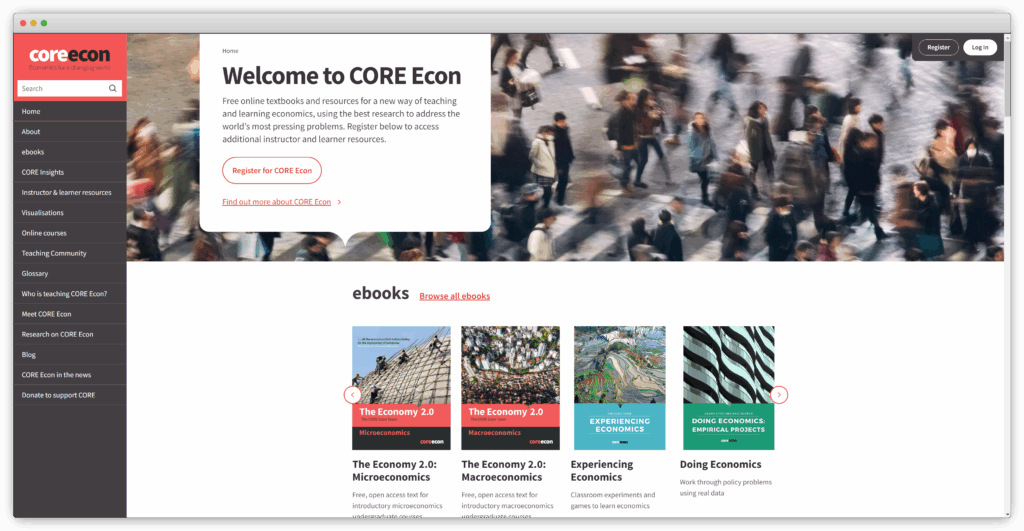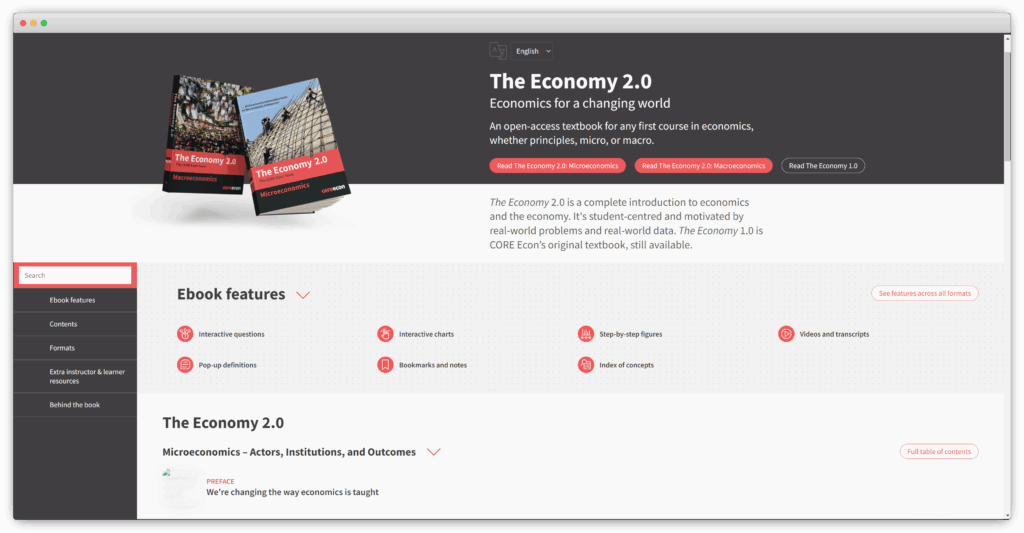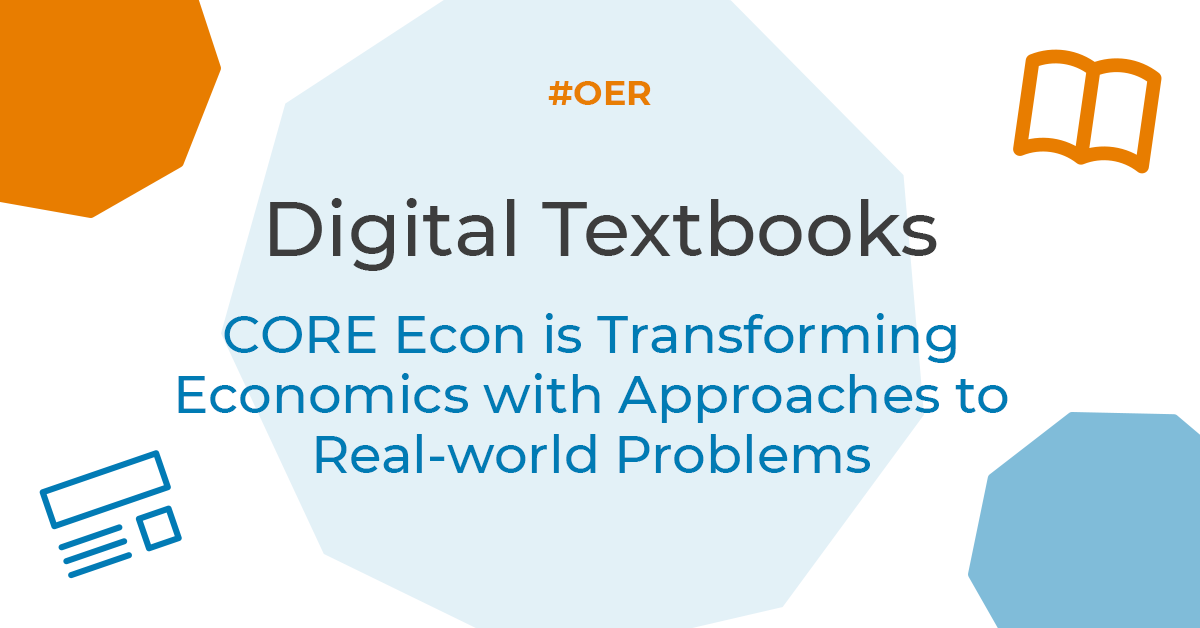How can teaching be designed with CORE Econ? What are the advantages and disadvantages of switching to CORE Econ? At an event organised by the Community für wissenschaftliches Arbeiten in den Wirtschaftswissenschaften (A German Community for Information Literacy and Academic Skills in Business and Economics), Prof. Christian Tode and Prof. Anna Göddeke shared their practical experiences and reported on how dealing with real-world topics and data affects student participation and motivation.
CORE Econ (Curriculum Open Access Resources in Economics) is an international network founded in 2012 to contribute to the reform of economics education. This was preceded by the 2008 financial crisis and criticism of economics.
The aim of CORE Econ is to promote a fairer, more sustainable and more democratic world and to empower students to help shape solutions to real-world problems. To this end, teaching of economics is centred around tangible challenges such as climate change, inequality and the future of work.
Encouraging problem-solving and critical thinking
CORE Econ offers freely available teaching and learning resources with interactive tools designed to promote active learning and encourage students to engage in problem-solving and critical thinking and reasoning. The core textbook, ‘The Economy’, has been translated into several languages. The German translation is entitled ‘Die Wirtschaft’ (The Economy). There are currently 18 e-books with different focuses or in different languages.

CORE Econ is taught in over 800 courses in 71 countries and is used by more than 30 universities in Germany.
Practical experience from teaching with CORE Econ
As part of an event organised by the ZBW's ‘Community für wissenschaftliches Arbeiten in den Wirtschaftswissenschaften’ on 25 September 2025 (German language), Prof. Dr Christian Tode (Hochschule Bonn-Rhein-Sieg University of Applied Sciences) and Prof. Dr Anna Göddeke (Reutlingen University, ESB Business School) presented their experiences on teaching with CORE Econ. Both emphasised positively that dealing with real-life topics and data led to more active participation and higher motivation among students. The digital textbook also offers a variety of learning options and allows for dynamic adaptation, such as the inclusion of a quiz. Tode and Göddeke emphasised that they valued CORE Econ as teachers because of the applied topics, the extensive and diverse material and the helpful community.

Tode, who also served as translation manager for the German version, ‘Die Wirtschaft,’ emphasised: ‘I am more motivated in my classes.’ Göddeke reported that she combines ‘The Economy’ with the ‘flipped classroom’ teaching concept, in which students are more involved and therefore engage more intensively with the economic content. Most students are very satisfied with the opportunity to prepare intensively for each class using the book. They prefer the book (whether electronic or printed) to learning with videos.
Step-by-step transition and appropriate sequence of topics
The broad topics and sometimes advanced subjects can be challenging for students and lead to a loss of focus. From the teachers' point of view, both criticised individual weaknesses in the structure and composition of the textbooks as well as the fact that some topics were not covered in sufficient depth. In the subsequent question and answer session, the event participants were particularly interested in how the transition could be successfully managed and to what extent courses with and without the use of CORE Econ materials are compatible. Göddeke and Tode recommended that the transition could take place in stages, initially using only individual chapters from a CORE Econ work. Otherwise, when making the switch, it is important to ensure that the order of topics covered matches that of other courses.
You can find more information about Open Educational Resources in the Open Economics Guide and corresponding Open Science tools.
Are you interested in the ‘Community for Scientific Work in Economics’? Subscribe to the mailing list to be informed about future events. You can also find the event slides here.
